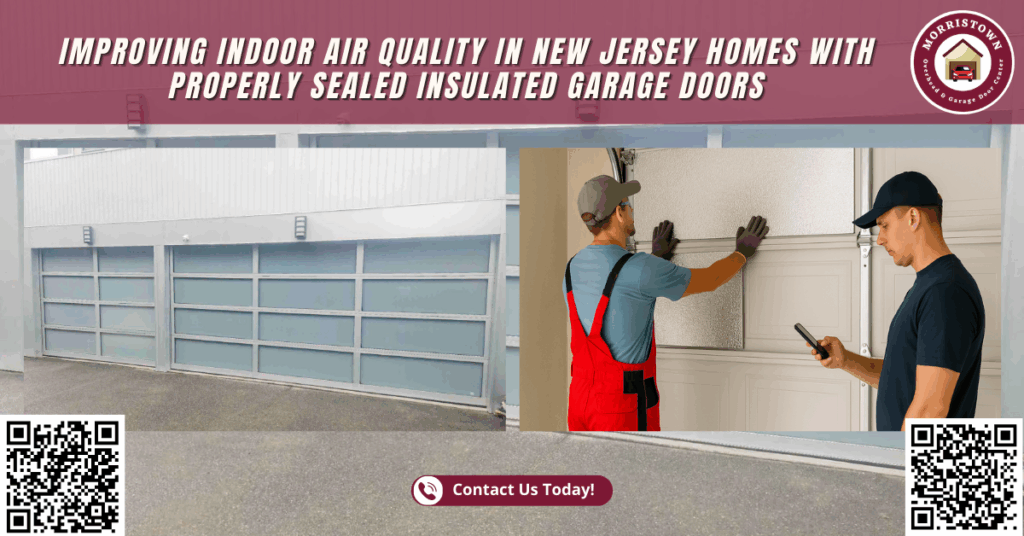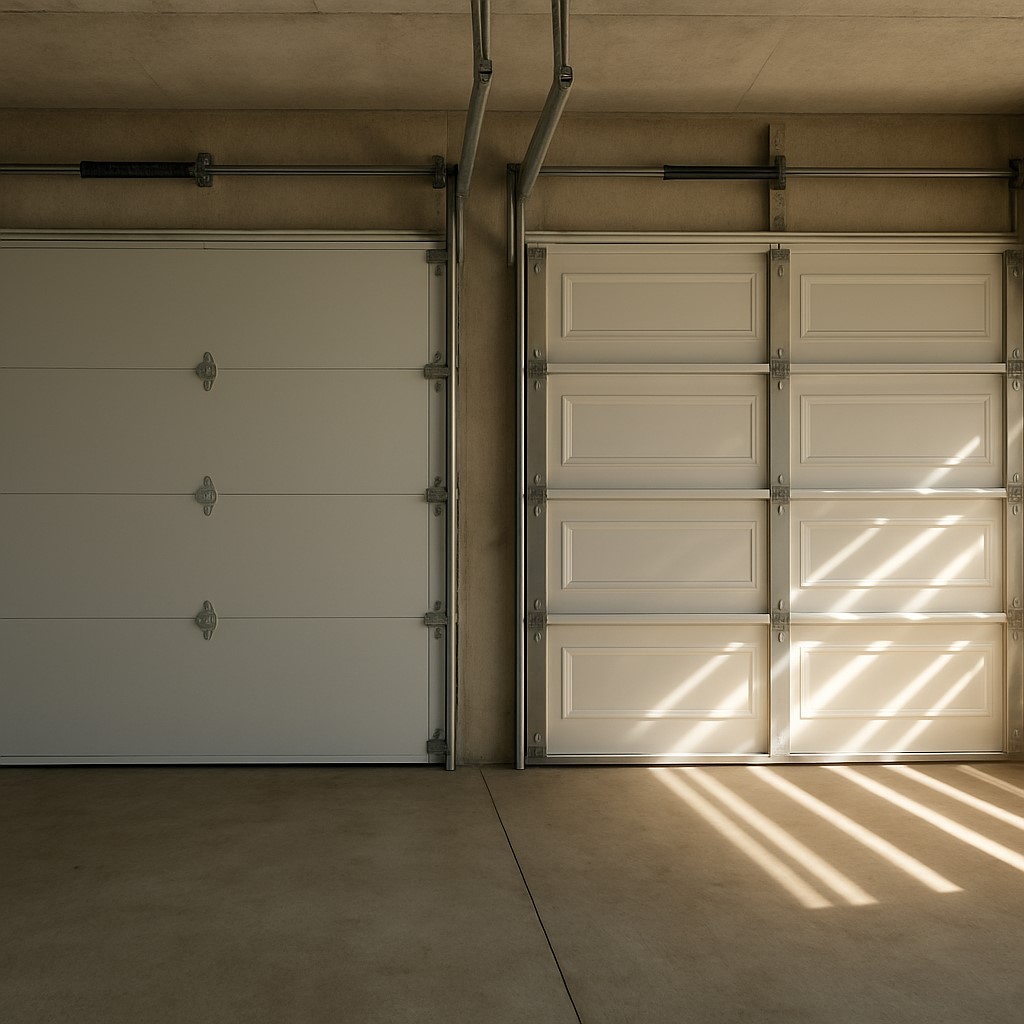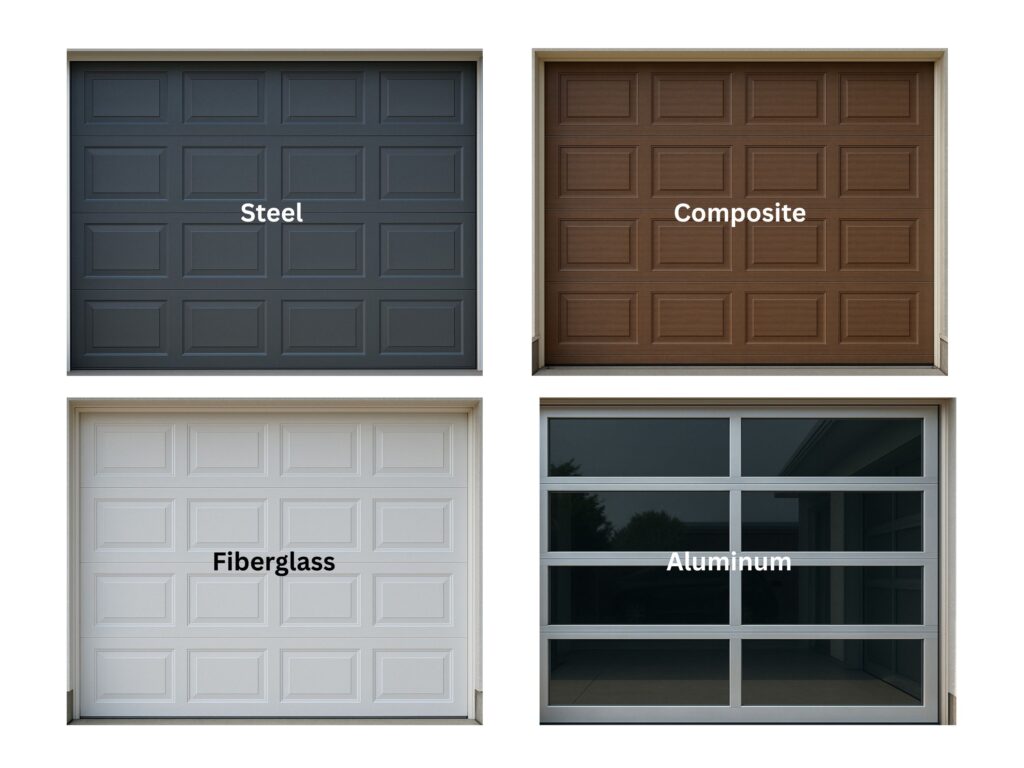Improving Indoor Air Quality in New Jersey Homes with Properly Sealed Insulated Garage Doors

On a blazing summer afternoon in Audubon, NJ, a homeowner contacted our team at Morristown Overhead & Garage Door Center. The complaint? The house felt stuffy, smelled faintly like exhaust, and energy bills had shot up. After a thorough inspection, we found the culprit: a thin, non-insulated garage door with worn weather seals. The garage was acting like a funnel, drawing in outdoor air filled with pollen, dust, moisture, and car fumes—and letting all that circulate into the home’s interior.
Our solution was a full replacement with a new insulated garage door featuring polyurethane foam insulation, tight perimeter sealing, and a high-efficiency garage door opener with a sealed logic board. Immediately, the difference was clear: improved air quality, stable indoor temperatures, and noticeably reduced energy bills. This case shows how upgrading a single part of your home, your garage door, can have a big impact on overall comfort, health, and energy savings.
According to the Environmental Protection Agency (EPA), indoor air pollution is one of the top five threats to public health. This is especially concerning in New Jersey, where hot weather, humidity, vehicle traffic, and allergens are common. While people often invest in air purifiers, HVAC upgrades, or ventilation systems, they frequently ignore a major weak point in their home’s air barrier the garage. If your garage features a non-insulated door, you could be exposing your garage space and home to a constant stream of pollutants and heat transfer.
Why Garage Doors Matter for Indoor Air Quality
The garage might feel like a separate space, but it often shares airflow with the main parts of your home. In many New Jersey homes, the garage is attached to the house and may even have direct access through an interior door. Without a properly insulated garage door, you’re allowing unfiltered outdoor air to creep into your living areas, especially during summer and winter, when temperature differences between inside and outside create strong air pressure shifts.
Common Air Pollutants from Garages:
- Dust and dirt carried by the wind
- Pollen, a major allergy trigger
- Vehicle exhaust, including carbon monoxide
- Mold spores are brought in by moisture and humidity
- Insect debris, pests, and even rodent droppings

These contaminants enter through cracks, gaps, and poorly sealed garage door panels. Thin, non-insulated doors, often made of basic aluminum or old steel, do little to block these elements. Worse, the garage’s tendency to heat up causes thermal transfer, pushing polluted air into your home. Over time, this can contribute to allergies, asthma, fatigue, and higher energy bills due to temperature instability.
What Is an Insulated Garage Door?
An insulated garage door is designed with multiple layers and insulation materials that block heat, air, and moisture from traveling between the inside and outside. It acts as a barrier, keeping hot or cold air out and keeping your garage space cleaner, quieter, and more energy-efficient. Modern insulated doors are available in various materials, each offering different levels of durability, performance, and R-values.
Common Insulation Materials and Types:
- Polyurethane foam – Dense, durable, with the highest R-value per inch. Best for thermal insulation and noise reduction.
- Polystyrene panels – Lightweight, cost-effective, with solid insulating ability. Common in many insulation kits.
- Fiberglass inserts – Add strength, resist corrosion, and provide a moderate level of insulation and noise control.
- Styrofoam sheets – Sometimes found in DIY garage door insulation kits, but less effective over time than polyurethane.
A door’s R-value measures its resistance to heat flow; the higher the R-value, the better the door insulates. In contrast, a lower U-value means better energy efficiency and less heat transfer. Look for doors with thick panels, tight seams, and foam-injected cores for maximum performance.
What Makes an Energy-Efficient Garage Door?
For a garage door to be truly energy-efficient, it needs more than just insulation. A complete system includes:
- Full-perimeter weatherstripping to block drafts and pests
- A heavy-duty bottom seal to stop water, insects, and air leaks
- Sectional door insulation kits for retrofits or older doors
- Reinforced tracks, rollers, and hinges for smooth operation
- A modern garage door opener with a sealed logic board, smart features, and light socket efficiency
All these components work together to ensure your garage is not an air or energy leak point. Installing an energy-efficient garage door system provides lasting benefits in air quality, temperature regulation, and cost savings.
Benefits of a Properly Sealed and Insulated Garage Door
1. Better Indoor Air Quality
An insulated and sealed door blocks pollutants from entering your garage space and reaching your living space. It keeps out dust, pollen, exhaust fumes, and moisture, leading to a cleaner, healthier indoor environment, especially important for families with young kids or people with respiratory conditions.
2. More Stable Indoor Temperatures
Whether it’s the heat of summer or the deep freeze of winter, an insulated garage door helps maintain a comfortable temperature in the garage and connected rooms. This reduces stress on your HVAC system and prevents energy loss.
3. Reduced Energy Costs
Sealing off a major point of heat transfer reduces the energy needed to cool or heat your home. Homeowners often notice significant energy savings after replacing non-insulated doors with high-R-value garage doors.
4. Noise Reduction
Thick insulation materials and multi-layered construction reduce the amount of noise from both inside and outside. That means less disruption from garage activities, street noise, or loud openers, ideal for attached garages near bedrooms or home offices.
5. Moisture and Mold Prevention
New Jersey’s weather includes high humidity and rain, which can lead to mold growth in unsealed garage spaces. An insulated garage door with proper weatherstripping keeps moisture out, reducing the risk of mildew and water damage.
6. Boosted Home Value and Curb Appeal
Installing a new garage door is one of the highest-ROI home improvement projects. Choose from stylish options like Amarr garage doors, Clopay garage doors, Martin garage doors, Craftsman garage doors, or even Chamberlain garage doors. They come in various door types, such as sectional doors, carriage-style doors, or aluminum and glass doors, offering durability, elegance, and a high return on investment.
Signs It’s Time to Upgrade Your Garage Door
If you’re not sure whether your garage door is helping or hurting your home’s comfort, look for these signs:
- You feel air drafts, see light, or notice gaps
- You hear loud creaks or vibrations during operation
- Your garage becomes uncomfortably hot or cold, depending on the temperature
- Your opener is outdated or malfunctions
- The door panels show signs of rust, warping, or water damage
- You’re experiencing higher-than-normal energy bills
Upgrading to a new garage door or installing a quality door insulation kit can fix these problems and deliver fast, noticeable benefits.
Choosing the Right Insulated Garage Door: A Quick Guide
When selecting a garage door, consider performance, appearance, and budget. Here’s a breakdown of popular options:
- Steel doors – Durable, secure, and available with foam core insulation. Great for long-term performance and easy to clean.
- Aluminum and glass doors – Sleek and modern. Many models include insulated glass panels for both style and energy savings.
- Wood composite – Offers the natural look of wood but contains internal urethane or foam insulation for higher R-values.
- Fiberglass doors – Lightweight and resistant to rust. Ideal for humid areas near the coast or lakes.

Make sure to consider the initial cost, return on investment, and long-term energy savings when choosing a product. A higher u-value means more heat transfer, which is less desirable. Look for low u-values and high r-values for optimal thermal transfer resistance.
Maintaining Your Insulated Garage Door
To get the most out of your garage door insulation, consistent care and maintenance are key:
- Check weatherstripping quarterly for cracks or gaps.
- Clean the door surface and seals to prevent buildup.
- Lubricate all moving parts, including rollers, hinges, and tracks.
- Inspect your garage door opener and logic board for wear or outdated tech.
- Replace door insulation kits, rigid foam, or batt insulation components when damaged.
Also, review your garage door guides or schedule professional maintenance annually to keep things running smoothly.
How Can Morristown Overhead & Garage Door Center Help You?
At Morristown Overhead & Garage Door Center, we proudly help New Jersey homeowners improve air quality, save energy, and upgrade the comfort of their homes through expert garage door installation, repair, and maintenance. Our skilled technicians install only high-quality insulated garage doors, designed to seal tightly, perform reliably, and last for years.
We offer a full selection of insulated door types, including popular brands like Clopay, Amarr, Martin, and more. Whether you’re replacing a single door, exploring a step-by-step guide to garage door upgrades, or need advice on the best insulation materials, we’re here to help.
📍 Visit us at 36 Phoenix Ave, Morristown, NJ 07960
📞 Call us at (862) 208-2994 for a free consultation, service appointment, or expert guidance.
Protect your air, your energy bills, and your garage space with help from Morristown Overhead & Garage Door Center, your trusted partner in garage door solutions.
Frequently Asked Questions (FAQs)
1. How much does it cost to install an insulated garage door?
The cost of an insulated garage door typically ranges from $800 to $4,000, depending on the size, material, insulation type, and additional features like windows or smart openers.
2. Can I insulate my existing garage door, or do I need to replace it?
Yes, you can use garage door insulation kits like rigid foam panels or batt insulation, but for maximum energy efficiency and air quality, a full replacement with a factory-insulated door is more effective.
3. What insulation type is best for garage doors in hot climates like New Jersey?
Polyurethane insulation is ideal for hot climates because it offers the highest R-value per inch, superior heat resistance, and minimizes thermal transfer better than polystyrene.
4. Will an insulated garage door make my garage fully air-conditioned?
Not exactly, it helps regulate temperature and improves energy efficiency, but without HVAC or ventilation, it won’t cool or heat the garage like an air-conditioned room.

